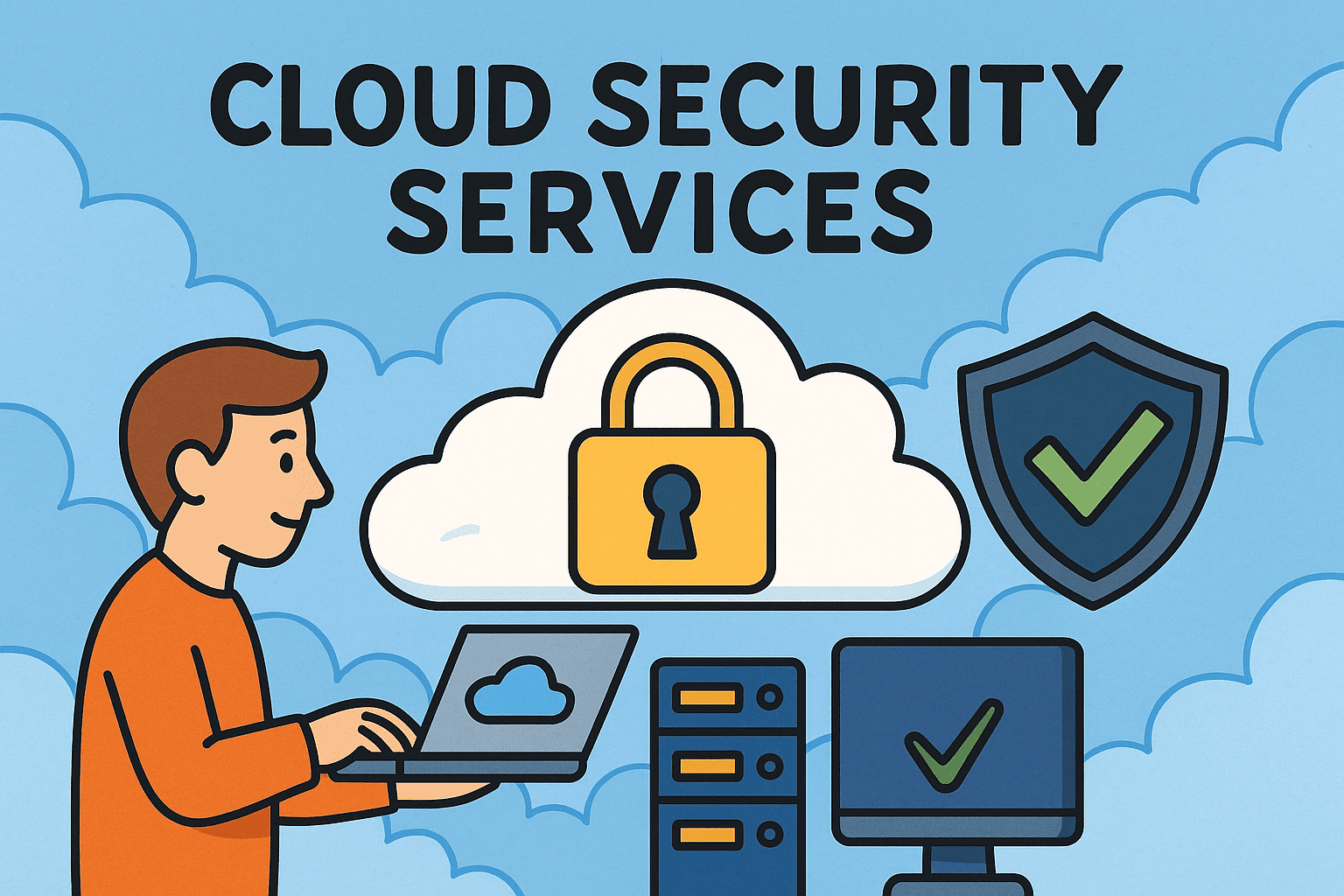Updated on October 21, 2025, by OpenEDR
Did you know that over 94% of enterprises use cloud services today? From storing customer data to running mission-critical applications, the cloud has become the backbone of modern business operations. But with this shift comes an equally significant challenge—cybersecurity risks.
Introduction: Why Cloud Security Services Matter
That’s where cloud security services step in. These solutions safeguard your data, networks, and workloads against ever-evolving cyber threats. For IT managers, CEOs, and cybersecurity leaders, understanding cloud security is no longer optional—it’s essential for protecting both business continuity and customer trust.
What Are Cloud Security Services?
Cloud security services are a combination of technologies, processes, and practices designed to protect cloud-based systems, applications, and data. They ensure secure access, prevent data breaches, and help organizations remain compliant with industry regulations.
Key aspects of cloud security include:
Data protection through encryption.
Identity and access management (IAM) to control user privileges.
Network security tools such as firewalls and intrusion detection systems.
Threat detection and response powered by AI and machine learning.
In essence, cloud security services provide the defense shield businesses need as they migrate more of their operations online.
Why Businesses Need Cloud Security Services
Cloud environments are prime targets for hackers. Here’s why companies must prioritize cloud security services:
Rising Cyberattacks – Cloud-related breaches rose by 27% in 2023.
Data Privacy Regulations – Laws like GDPR, HIPAA, and CCPA require strict protection.
Remote Workforce – Employees accessing data from anywhere introduces vulnerabilities.
Shared Responsibility Model – Cloud providers secure infrastructure, but businesses must protect their own data.
Reputation and Trust – A single data breach can erode years of customer loyalty.
Types of Cloud Security Services
Cloud security is not one-size-fits-all. Here are the main categories:
1. Cloud Access Security Brokers (CASB)
Act as a gatekeeper between users and cloud applications, enforcing security policies.
2. Identity and Access Management (IAM)
Ensures only authorized users can access sensitive data, often with multi-factor authentication (MFA).
3. Cloud Data Encryption
Protects stored and transmitted data with advanced encryption methods.
4. Web Application Firewalls (WAFs)
Safeguard applications hosted in the cloud from SQL injection, cross-site scripting, and DDoS attacks.
5. Threat Intelligence & Monitoring
Uses AI-driven analytics to detect and respond to unusual activities in real-time.
6. Compliance & Risk Management
Helps organizations meet industry standards and avoid costly penalties.
7. Backup and Disaster Recovery
Ensures business continuity with data replication and recovery options.
Benefits of Cloud Security Services
Investing in cloud security offers multiple advantages:
Data Protection – Encryption ensures sensitive information stays safe.
Business Continuity – Disaster recovery solutions minimize downtime.
Scalability – Security grows with your business and cloud usage.
Cost Efficiency – Preventing breaches saves millions in potential losses.
Enhanced Trust – Customers feel safer knowing their data is protected.
Challenges in Cloud Security
While cloud security services are powerful, organizations must still navigate challenges:
Misconfigured Settings – Human error is a leading cause of breaches.
Shadow IT – Employees using unauthorized apps without IT’s knowledge.
Shared Responsibility Confusion – Businesses mistakenly think providers handle all security.
Insider Threats – Disgruntled employees misusing access rights.
Evolving Threats – Attackers use automation and AI to scale attacks.
Cloud Security Services for Different Industries
Different industries face unique threats, and cloud security must adapt:
1. Healthcare
Protecting patient health information (PHI) and complying with HIPAA.
2. Finance
Preventing fraud, identity theft, and transaction tampering while staying compliant with PCI DSS.
3. Retail & E-commerce
Securing payment systems and customer databases from breaches.
4. Education
Safeguarding student records and remote learning platforms.
5. Government & Defense
Advanced encryption and threat intelligence to defend against state-sponsored attacks.
Best Practices for Cloud Security Services
To maximize protection, organizations should adopt these best practices:
Enable Multi-Factor Authentication (MFA) for all users.
Encrypt Data both at rest and in transit.
Regularly Update Security Policies to reflect new threats.
Conduct Vulnerability Scans and penetration testing.
Implement Zero Trust Security – never assume any connection is safe.
Train Employees to recognize phishing and social engineering attacks.
Future Trends in Cloud Security Services
The cybersecurity landscape is evolving, and so is cloud protection. Trends to watch include:
Zero Trust Security Models – “Never trust, always verify.”
AI-Powered Threat Detection – Machine learning identifies anomalies faster.
Cloud-Native Security – Built-in tools designed for hybrid and multi-cloud environments.
Secure Access Service Edge (SASE) – Combining networking and security into one framework.
Quantum-Resistant Encryption – Preparing for the next generation of cyber threats.
FAQs on Cloud Security Services
1. What are cloud security services?
They are technologies and practices that protect cloud data, applications, and infrastructure from cyber threats.
2. How do cloud security services differ from traditional security?
Traditional security protects on-premises systems, while cloud security addresses remote, distributed, and virtualized environments.
3. Are cloud security services expensive?
Costs vary but are typically scalable—paying only for what you need.
4. Can small businesses benefit from cloud security services?
Yes, small businesses are frequent targets of cyberattacks and need protection just as much as enterprises.
5. Who is responsible for cloud security?
It’s a shared responsibility—the provider secures the infrastructure, but the business secures data and user access.
Conclusion: Strengthen Your Business with Cloud Security Services
The cloud unlocks agility, innovation, and scalability, but without proper protection, it also exposes businesses to unprecedented risks. Cloud security services provide the comprehensive defense organizations need to safeguard sensitive data, ensure compliance, and maintain customer trust.
Whether you’re in healthcare, finance, or retail, adopting a proactive cloud security strategy is no longer optional—it’s a necessity.
👉 Ready to secure your cloud environment? Register here to explore Xcitium’s advanced cloud security solutions today.
